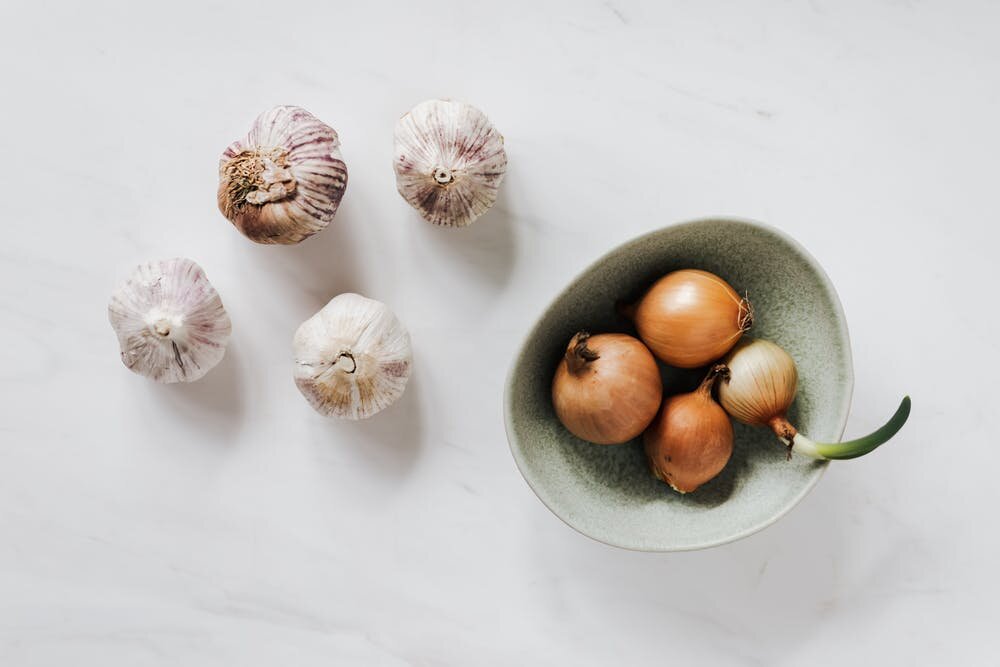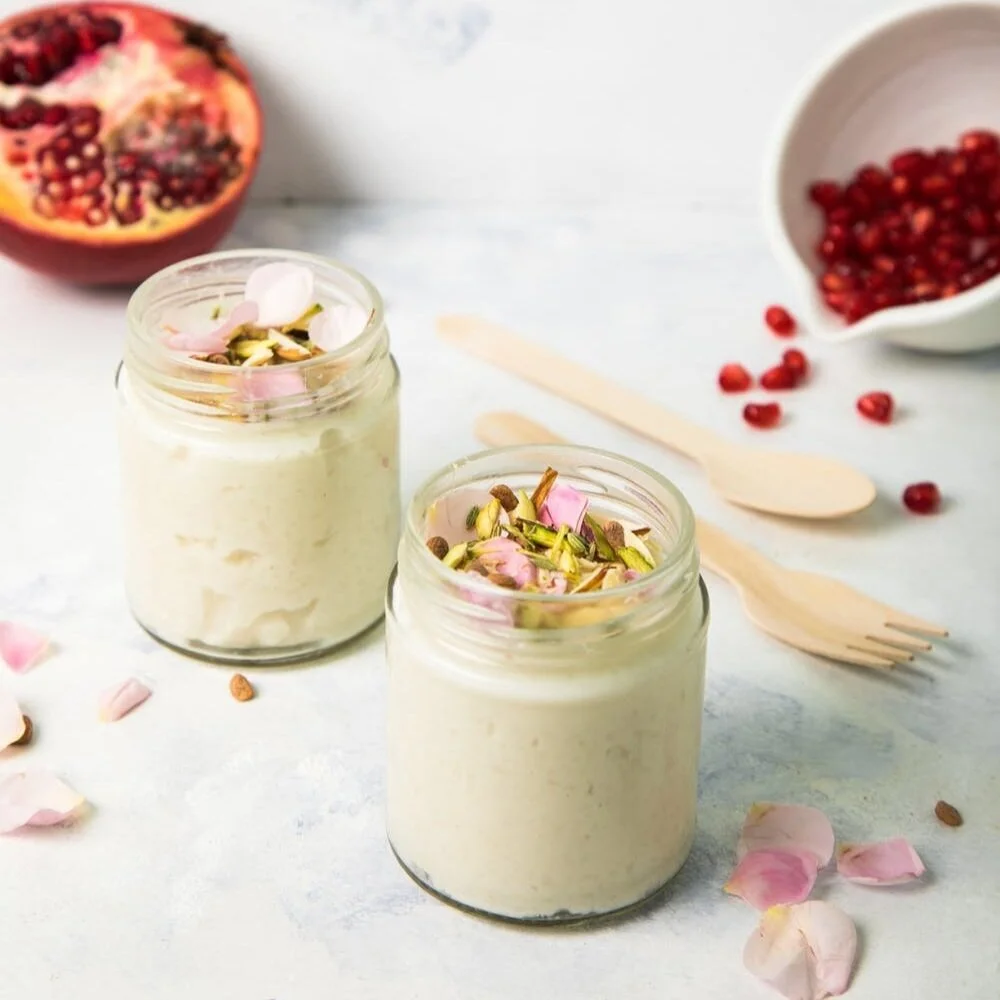By now you’ve probably heard of probiotics and are hopefully taking a supplement or making the conscious effort to eat more yogurt (natural and unsweetened!) raw fermented sauerkraut and other fresh fermented probiotic-rich foods.
Maybe you’ve even heard of prebiotics – those FIBERS that help to grow the healthy probiotics in our gut.
But maybe you haven’t yet heard of postbiotics. And/or maybe you’re unsure about the differences between these “biotics” and WHY it’s important to understand them.
So today I’m breaking it down in simple terms to help get you started on a path towards better GUT HEALTH.
Why does it matter?
One of the wisest phrases is no doubt that “YOU ARE WHAT YOU EAT.” However, digging deeper we’ve realized that it’s even more accurate to say, “YOU ARE WHAT YOU DIGEST.”
So for starters, we need to eat a healthy diet (lots of greens, veggies, healthy fats, no processed foods, etc), but more importantly, we need to make sure we are properly digesting these healthy foods. Because there is no point in filling up on broccoli and black beans if we aren’t properly digesting them.
We need to optimize our own unique digestive system to make sure that when we do eat all those healthy foods, we can properly absorb the nutrients we need in order to fuel our body.
A healthy digestive tract, especially a healthy intestine (commonly referred to as your GUT) is paramount to losing weight, avoiding disease, having healthy skin and hair, balanced hormones, good mood, and basically everything!!
How do we optimize our digestion to make sure we are getting the most out of our foods?
We need to FEED our microbiome (the bacteria in our gut) with a healthy, balanced, whole-foods diet filled with prebiotics and probiotics (that produce postbiotics) on a regular basis!
Eating MORE FIBER from a WIDE VARIETY OF PLANT FOODS is one of the best things you can do for your gut health and overall health. This is one of my #1 recommendations.
If you do this consistently, making sure you are fueling your gut with WHOLE FOODS, including sources of PREBIOTICS, PROBIOTICS and POSTBIOTICS, while avoiding the foods that inflame your gut, and limiting the bad habits that kill your good bacteria, than you will be on the best track possible to VIBRANT HEALTH.
What are prebiotics, probiotics and postbiotics? What’s the difference and how do we use them to maximize our health?
Prebiotics
Prebiotics are the key FUEL (food source) for the friendly bacteria in our intestinal tract (aka GUT). Basically, prebiotics help the probiotics (healthy bacteria) grow. They are plant fibers that aren’t easily broken down, so they’re able to reach the part of the colon (large intestine) where our “good”, “friendly” bacteria hang out. And here, these good bacteria cells feed on these prebiotics to grow and thrive.
Examples of food sources of PREBIOTICS:
Fiber-rich foods in many fruits, vegetables and whole grains, particularly in:
Onions, Leeks, Garlic, Asparagus
Jerusalem Artichokes and Chicory Root (root vegetables rich in inulin fiber)
Potatoes (cooked and cooled), Plantains and Bananas (rich in “resistant starch”)
Examples of supplement sources of PREBIOTICS:
Prebiotic supplements usually include one (or a combination of): chicory root, inulin (a fiber naturally found in all the above mentioned foods, including bananas, asparagus, onions, etc., but primarily extracted from chicory root), FOS (a type of inulin, AKA short-chain inulin), beta glucan, glucomannan, acacia fiber, apple pectin, rice bran and resistant potato starch . A few examples of prebiotic supplements are:
FiberMend prebiotics by Thorne Research
Garden of Life prebiotic fiber supplement
NOW Acacia Fiber (great to throw in smoothies)
Biotagen by Klaire Labs (containing inulin, chicory and beta-glucan - in pill/capsule form)
Probiotics
Probiotics are basically the “healthy, good bacteria” that we already have living in our gut (and throughout our body). Usually when we speak of probiotics, we’re referring to the live cultures of these bacteria (from both food sources and supplements) that we ingest to increase the population and diversity of all the healthy bacteria that we already have inside us. Consuming probiotics, whether in food or supplement form, has the potential to help restore our gut to optimum health, boost our immune system, and more.
Examples of food sources:
Natural yogurt and Kefir (unsweetened) with added Lactobacillus and Bifidobacterium strains. I make my own vegan coconut yogurt fermented with vegan probiotics (sold at Balance Studio in Managua)
Sauerkraut (fermented cabbage) and Kimchi (mix of fermented cabbage and other vegetables with added spices)
Kombucha (fermented tea)
Tempeh and Miso (from fermented soybeans)
Examples of supplement sources:
Here are some that I have used and recommend (but please see NOTE ON SUPPLEMENTS below):
*If you’re in Nicaragua, I sell some probiotic supplements in Balance Studio (contact me for current stock).
* READ here for more on the basics on probiotics. And if you want to go deeper, seed.com has a good Q&A on probiotic supplements.
Symbiotics
Supplements that combine both prebiotics and probiotics.
I love (and personally use) SEED and have heard great things about Nue Co.; both are symbiotics.
Postbiotics
This is basically the byproduct of the probiotics fueled by the prebiotics. Basically, when we eat our prebiotic fibers, which then feed our probiotics = they produce POSTBIOTICS in our gut.
Postbiotics are primarily short-chain fatty acids (and include diverse organic acids, enzymes, and bacteriocin proteins) which have important health benefits (can help promote regular bowel movements, lower blood sugar, reduce inflammation, and more).
Examples of “postbiotic” short-chain fatty acids include: acetate, butyrate, and propionate.
The idea is that if you eat enough plant-based foods filled with prebiotics and probiotics on a regular basis, your body should produce enough postbiotics. However there are also targeted supplements to directly boost your postbiotics.
Some supplements include:
EnteroVite (the is the supplement that I’ve personally taken, recommended by my holistic doctor)
Biome Equal (think biome)
A NOTE ON SUPPLEMENTS. When choosing a supplement, look for:
Labels of: non-GMO, hypoallergenic, free of milk, eggs, shellfish, fish, gluten, corn, soy, peanuts, wheat, and fish. And no artificial ingredients (nor unlabeled “natural” ingredients).
Products with a seal of approval from testing agencies, and 3rd party certifications, and whose manufacturer is compliant with Current Good Manufacturing Practices (cGMPs).
Brands recommended by well-known holistic doctors and practitioners that have done lots of research. Some good brands for probiotics (that I’ve taken and used with success with clients) include: Klaire Labs, Garden of Life, Seed and NUE Co. I’ve also had lots of success with probiotics in SPORE form such as MegaSpore; a potent source that’s great to take post a round of antibiotics
To sum it up:
Prebiotics are like the “food”, probiotics are the healthy microorganisms themselves (that we want more of), and postbiotics are the results of probiotics consuming the “prebiotic food” (which have proven to have significant positive impact on our health).
It’s important to understand the role of each on in our gut, and (again!) to keep eating a wide variety of fiber-rich plant-based foods (regardless of the diet you follow, always adjusting to what feels best for your unique body).
COMMENTS / NOTES:
*Regarding optimal diet for gut health: The best foods for YOU may be different than the ideal foods for your partner (or for that super-fit person you follow on Instagram)! Accepting this is key. Work with a health coach to find out what’s the right diet for you.
*Regarding gut health issues: If you have some consistent gut issues, anything ranging from inconsistent bowels, loose stools, constipation, gas and bloating, or stomach pains, then you likely have some inflammation in your gut and/or damage to your gut lining, that may need to be addressed first. It can help to do a proper elimination diet and/or low-fodmap diet (the amount of time and strictness of you diet depends on your condition), then take certain supplements to help repair your gut lining. For this process, it’s KEY to work with a qualified functional medicine doctor or holistic health practitioner with experience. But in general, eating a balanced, plant-rich diet (as mentioned above) with TONS of plant-based fiber sources and pre and probiotics will usually help A LOT.
*Regarding probiotic supplements: There are so many different strains of probiotics, so its good to research which strains help most with your specific health condition(s). But even once you decide which strains of probiotics that you want in your supplement, there can be large disparities between brands. And what may be marketed to have worked for some may not necessarily work for you. Lastly, it’s always best to check with your doctor (if you have a specific condition / take any medications) regarding your choice of probiotics.
Some references:
https://theplantfedgut.com/research/
https://www.thinkbiome.com/postbiotics



